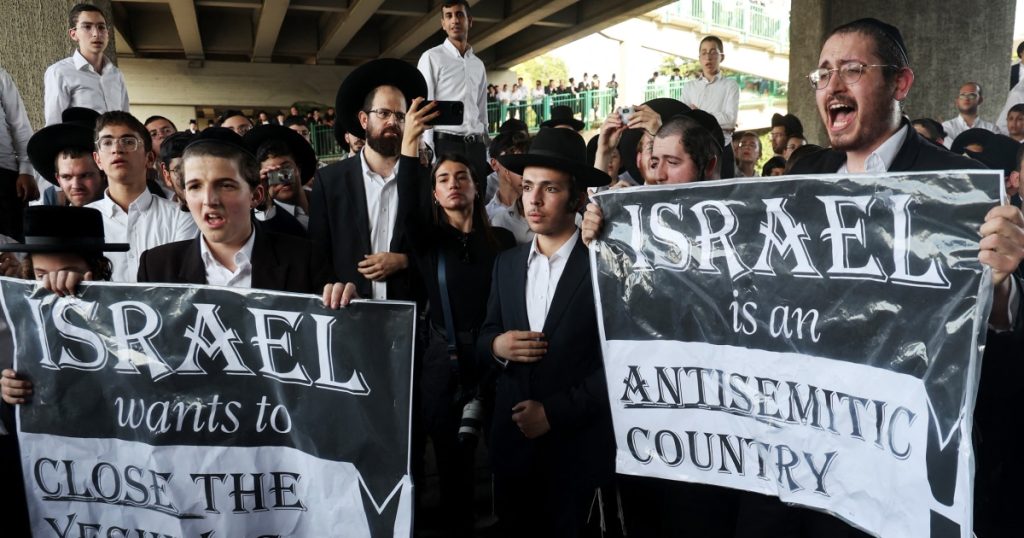Israel’s Supreme Court recently ruled that ultra-Orthodox Jewish seminary students must be drafted into the military, a decision that poses a challenge to Prime Minister Benjamin Netanyahu’s fragile governing coalition. The court stated that at a time of conflict, the burden of inequality is intensified, indicating the need for all citizens to participate in national service. While most Israelis are required to serve in the military, exemptions have historically existed for ultra-Orthodox individuals to study in religious seminaries. This ruling has sparked protests from the ultra-Orthodox community, who strongly oppose the changes.
The ultra-Orthodox parties are key members of Netanyahu’s governing coalition, and their support is crucial for his leadership. However, their demand for exemptions for seminary students conflicts with the court ruling, leading to a potential crisis within the coalition. Netanyahu’s position has already been challenged by the resignation of former defense minister Benny Gantz, which forced the dissolution of the war Cabinet. If Netanyahu’s government collapses as a result of this ruling, Israel may face new elections, and polling suggests that Netanyahu is at risk of losing power.
The timing of this decision is significant, coming at a time when Israel is engaged in a prolonged offensive in the Gaza Strip following attacks by Hamas. The court’s ruling could have wide-reaching implications for national security and the overall stability of the government. The issue of military conscription for ultra-Orthodox individuals has long been a contentious one in Israel, with various political and social factors at play. The court’s decision highlights the ongoing debate around equality and participation in national service.
The Supreme Court’s ruling represents a major shift in the policy regarding military service for ultra-Orthodox individuals, challenging the exemptions that have been in place for decades. This decision reflects a broader push for greater equality and integration within Israeli society, particularly in the context of national defense. The court’s decision is likely to fuel further debate and controversy among different sectors of Israeli society, and could have significant implications for the future of military conscription in the country.
The conflict over military conscription for ultra-Orthodox individuals is emblematic of larger tensions within Israeli society, including the balance between religious freedom and national security. The court’s ruling has reignited discussions about the role of the military in Israeli life and the responsibilities of different communities within the country. The decision has the potential to reshape the dynamics of Israeli politics and governance, with potential repercussions for the coalition government and future elections. The unfolding developments in response to the court’s ruling will be closely watched both within Israel and internationally.


